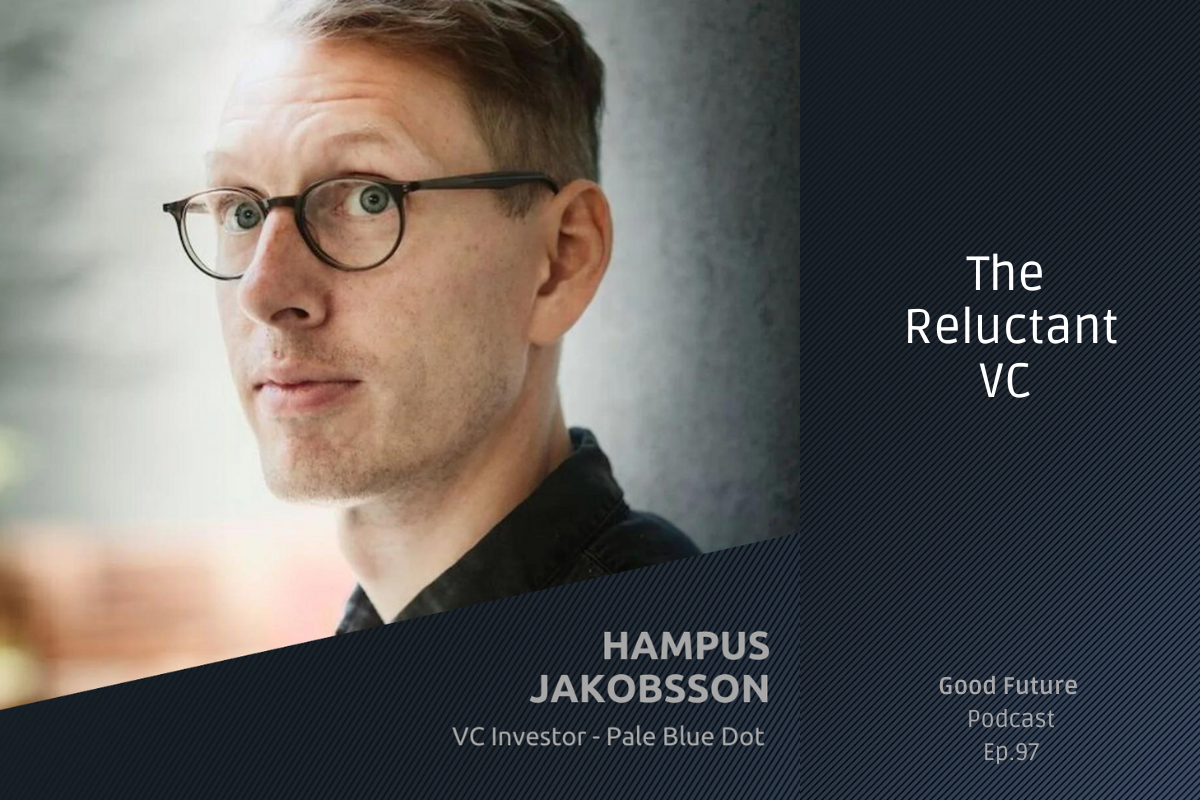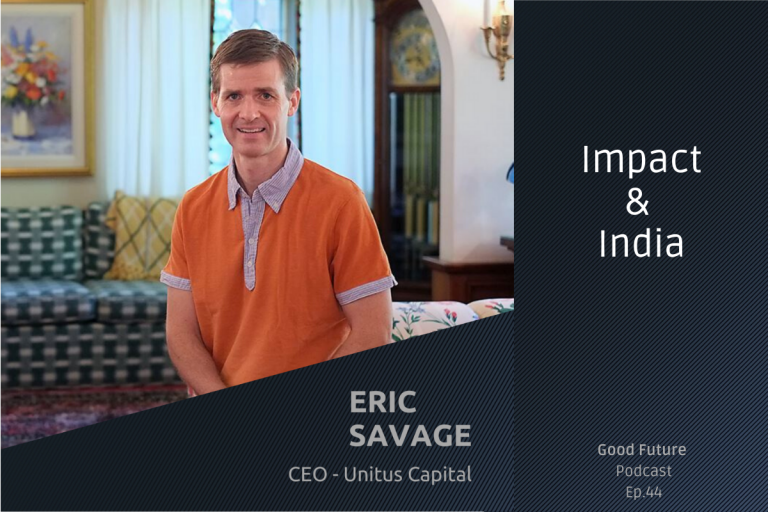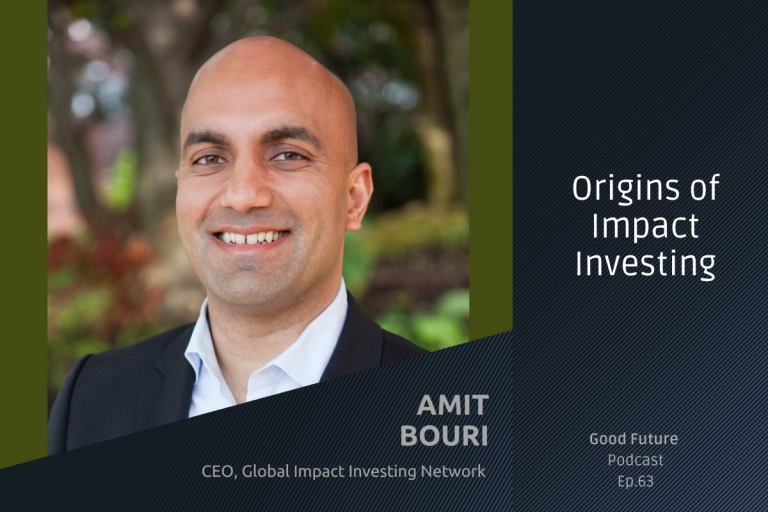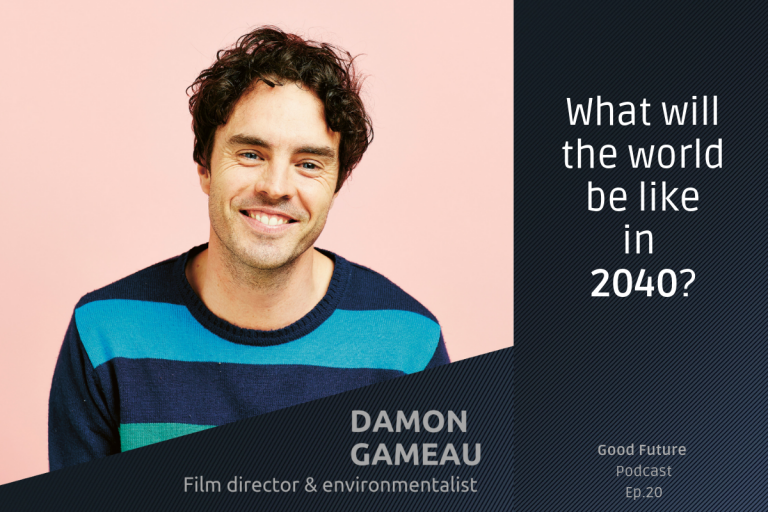This was a wild ride! Hampus Jakobsson is founder of VC firm Pale Blue Dot, and his journey to discover climate investing is quite a story.
Hampus is based in Sweden, and he started out as an entrepreneur, bouncing from Sony-Ericsson to Blackberry, building software in the early days of mobile phones, and as he grew to appreciate the incredible power of capital to make big changes in the world, he was slowly drawn to investing.
He resisted opportunities to switch to VC for a long time, before eventually taking a role with some of Europe’s most progressive VCs.
But in 2019, when he suggested they explore climate-tech investing, they shook their heads, despite having invested in a swag of wildly innovative startups, they couldn’t get their heads around the idea of investing in ‘climate’.
Since then, things have changed dramatically, and climate-tech has emerged as one of the fastest growing themes in early-stage investing.


Listen on Soundcloud
On this episode
We breakdown the Pale Blue Dot investment process. So far they have invested in some 40 startups, across a range of themes and business models.
Hampus is really generous with his stories and his insights. He explains his methodology and process for identifying those outlier founders that have, not only an audacious business idea to change the world, but also, the tenacity and grit to push past the obstacles and execute on it.
He’s had a dizzying career so far, but after listening to this one, I’m sure you’ll agree that he’s just getting started. He has energy, and a sharp intellect and a passion for climate solutions that’s infectious.
My key takeaway this week…
“we love meeting founders where we leave thinking; that’s either the dumbest thing I’ve heard or the smartest thing I’ve heard”
“founders need to be ahead of the curve, which means that if we (the investors) can come up with the idea, then it’s probably a bad idea”
Good Future’s Good Books
By Charlotte McConaghy
“I read a lot of fiction. And I would say the book I read last month that I really, really enjoyed was ‘Once There Were Wolves’. And I think what I like about that book is it’s a book about rewilding. And it’s not a book about rewilding in the sense that everybody now thinks, amazing, I’m going to read about this person who’s trying to help the world be better. It’s about the challenge of rewilding.
Because and it’s a book, ask the question in a lovely way. It’s a fiction book again. It’s a book, ask what what is wild? What is tame? What is civilization? What’s civility. And I think it’s like, I really enjoyed the book because it creates a lot of it, it makes it easier to understand. Like if you’re a sheep farmer in Scotland and somebody introduced wolves, you’re not going to be super positive to that. Right, and you understand that you won’t at the same time, you need wolves to handle the caribou who are eating the trees that are turning everything into a marsh.
But you also see the complexity of that, right. I think it was an amazing book because it was nuanced and had multiple layers. And it made me think a lot while also just, it was just good fiction.”
Links
Pale Blue Dot
Blue Yard
Follow us…
Sign-up for notifications of new episodes HERE
The Good Future Instagram is pretty great, check it out over HERE
My Twitter is over HERE
And you can get me on LinkedIn HERE
Disclaimer
The information on this website, and linked podcast episodes, is for information and entertainment purposed only, it is not intended as financial advice.
If there has been mention of financial products it should not be taken as a recommendation, and it shouldn’t be relied upon. It does not take into account the investment objectives, financial situation, or the particular needs of any potential investor.
You should consider obtaining independent advice before making any financial decisions
If you’re in Australia you can visit moneysmart.gov.au for more details.
Full Transcript
Note: this was an automated production by Otter.ai, so some errors may remain





